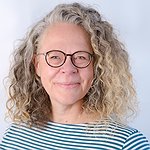
Disability at CERES
Reflecting the values and the work of Ruhr University more broadly, CERES is committed to fostering a culture of openness and accessibility. Regarding the particular topic of disability, we recognize the importance of creating an environment that supports the full participation and success of disabled individuals, ensuring equal opportunities for academic and professional growth. We understand disability as a diverse and integral aspect of human experience, and after the COVID 19 pandemic it has become increasingly evident that disability is dynamic and includes a range of identities and experiences (e.g. people with physical, sensory, cognitive, psychiatric, non-apparent, and non-visible disabilities; chronically ill, neurodivergent, Deaf, Blind, Autistic, and Mad1 people; and people with and without diagnosis status). Disability arises not only from inherent body-mind conditions, but also from a societal environment that lacks support and understanding of such conditions. We acknowledge that social systems and structures perpetuate and exacerbate biases, resulting in a variety of intersecting barriers to equity within professional networks. CERES, like the RUB as a whole, is committed to continuously working towards dismantling such barriers stemming from ableism, sexism, racism, homophobia, etc.
We value the perspectives and contributions disabled scholars and students bring to enrich our academic community. Therefore, to uphold our commitment to inclusion and in cooperation with the RUB Representative for severely disabled persons (Schwerbehindertenvertretung), we pledge to:
- Provide accessibility: We will proactively identify and eliminate barriers that hinder the full participation of disabled individuals in all aspects of academic life within our department. We will work with disabled scholars and students to provide reasonable accommodations that meet their individual needs. This may include flexible teaching and assessment methods, modified workspaces, assistive technologies, and other necessary adjustments to ensure equal opportunities for academic achievement.
- Foster supportive environments and encourage representation: We will continue to cultivate an environment of respect and empathy, encouraging open dialogue and the consideration of diverse needs, perspectives, and experiences. We recognize the importance of having a diversity of voices represented within our institute, including by way of welcoming disabled scholars and students in departmental events, conferences, committees, and leadership positions.
- Continuous improvement: To ensure our commitment to an ongoing process of learning and improvement regarding disability awareness, we regularly assess our practices and policies to identify areas for growth, incorporating feedback from all the CERES members. For instance, disability awareness and integration is discussed at the CERES directorate’s first meeting of each year.
- Improve education: We will continue to provide information and educational material for disability awareness and best practices in accessible education and academia as provided by the RUB Representative for severely disabled persons. We will specify this for our immediate working environment at CERES, for instance by way of informational events and discussion groups.
By embracing the principles of inclusion and actively supporting disabled scholars and students, CERES aims to continuously foster an environment of diversity and belonging amidst academic excellence.
Please contact Ms. Susanne Göhre at CERES with any questions and concerns regarding the topic of disability.

Please also note the following information and services provided by RUB:
- Information on RUB as an inclusive university:
https://uni.ruhr-uni-bochum.de/en/inclusive-university - Studying at RUB with disability:
https://studium.ruhr-uni-bochum.de/en/students-health-impairments - Disability officer at RUB:
https://einrichtungen.ruhr-uni-bochum.de/en/node/258 - Further information:
https://einrichtungen.ruhr-uni-bochum.de/en/node/814 - Representative for severely disabled persons at RUB:
https://www.ruhr-uni-bochum.de/sbv/index.html.de - Psychosocial support (German only):
https://serviceportal.ruhr-uni-bochum.de/Begriffesammlung/Seiten/kurzberatung-persoenliche-und-berufliche-fragestellungen.aspx
1 See e.g. Price, Margaret. Mad at School: Rhetorics of Mental Disability and Academic Life. Ann Arbor: University of Michigan Press, 2011. Online. https://doi.org/10.3998/mpub.1612837.

